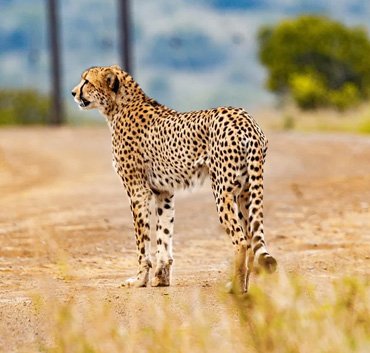
In the heart of Gujarat, India, a sprawling 3,000-acre wildlife sanctuary named Vantara has recently become a focal point of both admiration and controversy. Established by Anant Ambani, the youngest son of billionaire Mukesh Ambani, Vantara positions itself as a beacon for wildlife rescue, rehabilitation, and conservation. However, recent events have cast a shadow over its operations, prompting debates about the true nature of this ambitious project.
A Grand Inauguration
On March 4, 2025, Prime Minister Narendra Modi inaugurated Vantara, lauding it as a landmark in wildlife conservation. The facility boasts over 2,000 animals across 43 species, including advanced veterinary technologies such as ICU, MRI, CT scan, X-ray, ultrasound, and endoscopy units. Spread over several acres, Vantara’s ecosystem allows rescued herbivores to roam freely, aiming to provide a semblance of their natural habitat.
Rising Concerns from South Africa
Read Also Why Vantara is Not Open to the Public: Everything You Need to Know
Despite its noble intentions, Vantara has come under scrutiny from international animal rights organizations. The Wildlife Animal Protection Forum of South Africa (WAPFSA), a coalition of 30 groups, has raised alarms over the large-scale export of wild animals to Vantara. In a letter dated March 6, WAPFSA urged South African authorities to investigate these exports, citing “legitimate concerns” regarding the welfare of the animals and the suitability of their new environment in Gujarat’s arid climate.
Allegations of a ‘Private Zoo’
Critics have gone further, questioning the true purpose of Vantara. Some allege that, rather than serving as a genuine conservation effort, Vantara functions more as a private collection for the Ambani family, dubbing it a “billionaire’s private zoo.” These allegations stem from the facility’s proximity to the Jamnagar Refinery, the world’s largest oil refinery, also owned by Reliance Industries. Concerns have been raised about the potential environmental impact of housing exotic wildlife so close to industrial operations.
Read Also Vantara Zoo Ticket Booking and Entry Fees
Media Suppression and Legal Threats
Adding fuel to the fire, reports critical of Vantara have mysteriously vanished from certain news outlets. Several media organizations have allegedly received “threat mails” and legal notices, leading to the removal of articles that questioned the ethics and operations of the sanctuary. This has sparked debates about press freedom and the influence of powerful corporations in shaping public narratives.
The Path Forward
The establishment of Vantara highlights the complexities inherent in large-scale conservation projects funded by private entities. While the sanctuary has the potential to make significant positive impacts on wildlife conservation, transparency in its operations and adherence to ethical standards are paramount. The concerns raised by international organizations and the media underscore the need for rigorous oversight to ensure that Vantara serves the best interests of the animals it aims to protect.
Read Also Vantara and Bollywood Unite: Sitare Zameen Par Cast Visits and Names Cheetah Cubs
As the debate continues, the world watches closely, hopeful that Vantara will fulfill its promise as a sanctuary for wildlife rather than a symbol of opulence.


 Previous Post
Previous Post Next Post
Next Post